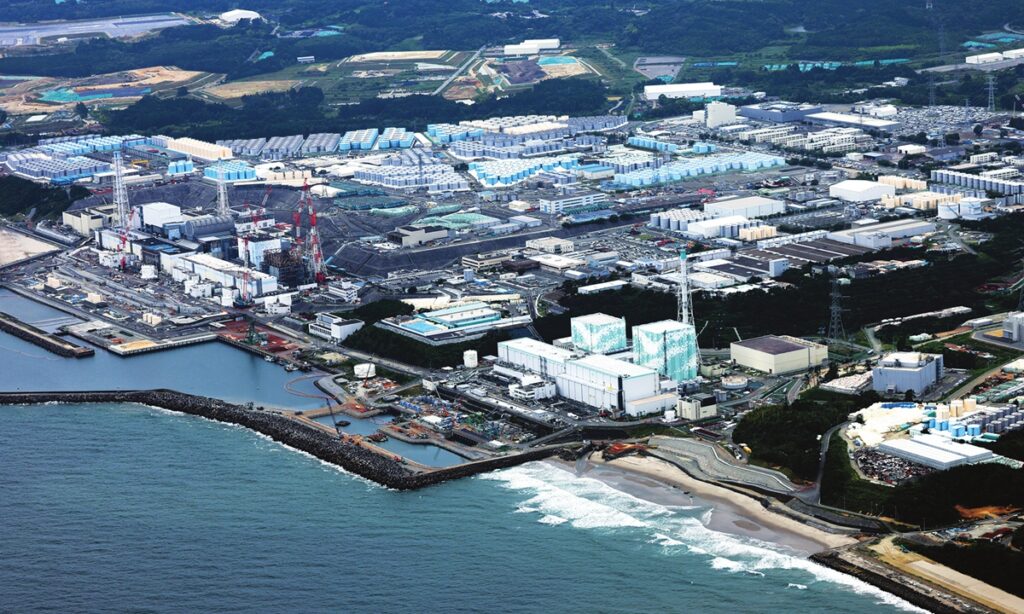It is both ironic and astounding to see the Western reaction toward Japan’s dumping of nuclear-contaminated wastewater completely focused on blurring the point and distorting the truth. In the face of the unprecedented destruction the global marine ecosystem will face in coming decades, Western politicians and media outlets that pride themselves on caring about the environment seem to have suddenly lost their ability to question.
Yet they are quick to point a finger at China’s reaction, which some Western media outlets claimed “has more political than economic heft.”
China announced a ban on imports of all aquatic products originating from Japan starting last Thursday, when Japan started dumping nuclear-contaminated wastewater from the crippled Fukushima Daiichi nuclear power plant into the sea.
In recent years, some in the West have lost their basic rationality and become more and more hysterical in their anti-China actions. When it comes to Japan’s dumping, they do not have the scientific attitude and do not even bother to analyze it seriously, instead, they have adopted an attitude of supporting what China opposes and opposing what China supports, to show their political stance toward China. Some Western media outlets, such as Reuters and the VOA, have been either keen to endorse Japan’s dumping or argue that China’s ban is based on political considerations rather than health risks.
If anything, the Western attempt to create an impression that the radiation effects on human health and the environment from the dumping of the Fukushima nuclear-contaminated wastewater are “negligible” looks more like being politically driven, which is the only explanation why they choose to disregard the huge risks and unpredictable hazards of the nuclear-contaminated wastewater.
But the Western justification is feeble in the face of the facts. There are dozens of radioactive isotopes in Japan’s nuclear-contaminated wastewater, which is completely different from the typical nuclear plant’s discharge. It also remains unclear how Japan’s so-called purification facility can “treat” all these radioactive isotopes. This is also why over the past two years and more, the legitimacy, legality and safety of Japan’s ocean discharge plan has been questioned over and over again by the international community.
Japan has yet to address major international concerns such as the long-term reliability of the purification facility, the authenticity and accuracy of the nuclear-contaminated water data, and the effectiveness of the monitoring arrangement. Under such circumstances, China’s ban is clearly a manifestation of the Chinese government’s determination to take all measures necessary to safeguard food safety and public health. Given the potential 30-year release of such a huge amount of dozens of radioactive isotopes into the sea, there is nothing wrong with China acting on the basis of the available information, scientific analysis and judgment.
The discharging of the Fukushima nuclear-contaminated wastewater into the sea will first create zones with the highest concentration of radioactive pollutants off the coast of Japan before spreading with the currents to the global oceans. Although those radioactive pollutants will eventually reach every part of the sea, as long as the discharging continues, the waters near Japan will have the highest concentration of contamination, with Japanese seafood facing the highest radioactive contamination risks. Thus, it is a scientific and responsible call for the Chinese government to stop importing all Japanese aquatic products.
If the Japanese fishery industry takes a hit from the ban, it is not China or any other country that has imposed a ban on Japanese products that is to blame, but the Japanese government that should take the responsibility.
China and other stakeholders have pointed out on multiple occasions that if the Fukushima nuclear-contaminated wastewater is truly safe, Japan wouldn’t have to dump it into the sea – and certainly shouldn’t if it’s not. Neither Japan nor the West can give a reasonable explanation for this.
If any Western country thinks China is making a fuss about nothing and the risks of the nuclear-contaminated wastewater are manageable, they’d better send some ships to transport some wastewater to discharge into their own waters. After all, Western endorsements of Japan’s release plan cannot be done with only lip service, but with real action.
(Global Times)




